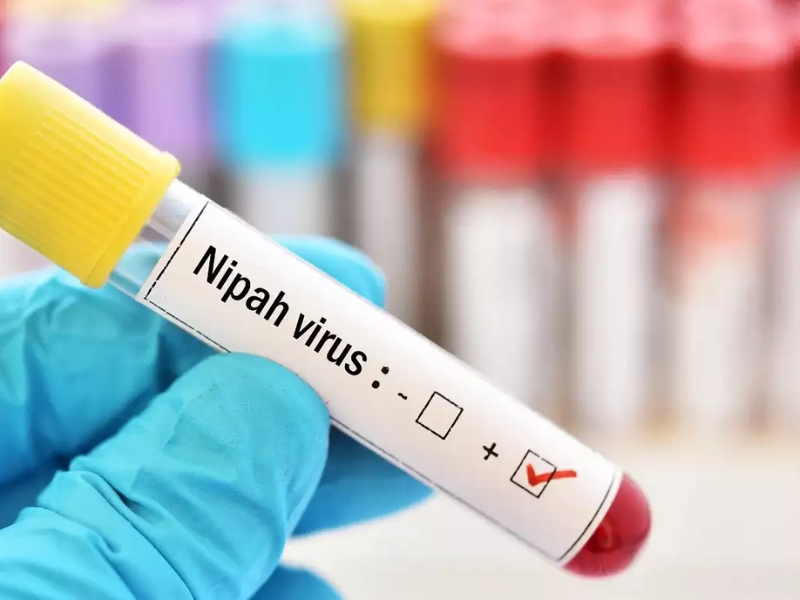A 24-year-old student has died in Kerala in India after being infected with the Nipah virus, confirmed state Health Minister Veena George. The man died at a private hospital on Sunday.
He was a student in India’s Bengaluru and had come in contact with several people, say authorities. State media reports that 151 people have been identified as his primary contacts. Five people in isolation have developed mild symptoms, and their samples have also been sent for testing, say authorities.
The state Health Minister has called for an emergency meeting and instructed authorities to follow protocol for early detection and treatment.
What is Nipah Virus?
Nipah virus infection is a viral zoonotic disease caused by the Nipah virus (NiV) from the genus Henipavirus. Fruit bats, also known as flying foxes, are the primary zoonotic host and can transmit the virus to humans and animals—particularly livestock such as pigs and horses.
How does it spread?
The virus can spread to people through consumption of raw date palm sap and fruit that has been contaminated with bat secretions like saliva and urine. The virus can also spread through close contact with an infected animal or its bodily fluids. Once infected, person-to-person spread is possible with close contact and through nasal and respiratory secretions, blood, and urine.
What are the symptoms?
Symptoms include fever, headache, a cough, sore throat, difficulty in breathing and vomiting. Symptoms typically appear within 4-14 days of exposure to the virus. Nipah outbreaks occur nearly every year in parts of Asia, often in Bangladesh and India. Around 40%–70% of people with Nipah die, says the Centers for Disease Control and Prevention, or CDC.
What should you do?
The U.S. CDC says that caregivers and healthcare providers caring for a patient with Nipah are at a higher risk of becoming infected. The body recommends the following measures to contain a Nipah outbreak:
- Wash your hands regularly with soap and water.
- Avoid contact with flying fox bats or sick pigs.
- Avoid areas where bats roost.
- Avoid touching anything that could be soiled by bats.
- Avoid eating raw date palm sap or fruit that could be soiled by bats.
- Avoid contact with the blood or body fluids of someone with Nipah.






